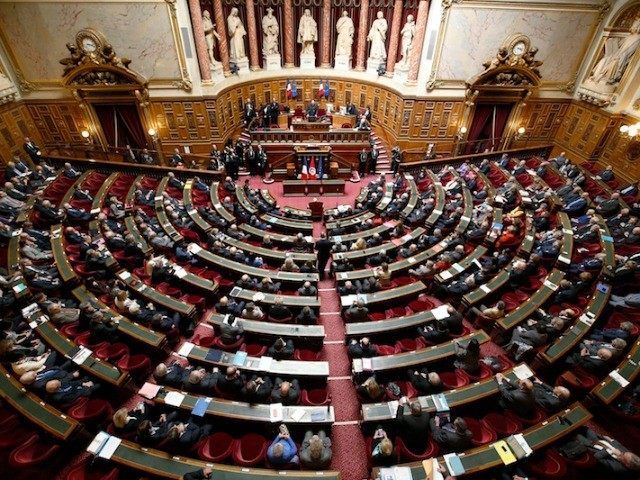The Surveillance State faces stiff criticism in the United States. Limiting domestic surveillance, or at least subjecting it to more extensive oversight, is likely to be a prominent feature of several 2016 presidential campaigns. But in France, Parliament just took domestic surveillance up a notch, granting internal intelligence services “their most intrusive domestic spying abilities ever, with almost no judicial oversight,” as The New York Times puts it.
Unsurprisingly, the Charlie Hebdo massacre in Paris is seen as a major incentive for expanded domestic surveillance. The BBC notes this new intelligence-gathering law was drafted immediately after the Charlie Hebdo killers were brought down.
Last month’s narrowly averted jihad attack on churches in the Parisian suburbs raised anxieties even further. The French are dealing with hundreds of citizens heading off to Iraq and Syria to join the jihad and, even worse, coming back home. Their intelligence laws have not seen a major overhaul since 1991, according to Prime Minister Manuel Valls.
The new measures in France include cellphone and email metadata harvesting, along the lines of the National Security Agency’s controversial programs in the United States.
But there’s much more. “The provisions, as currently outlined, would allow the intelligence services to tap cellphones, read emails and force Internet companies to comply with requests to allow the government to sift through virtually all of their subscribers’ communications,” reports The New York Times, adding:
The intelligence services could also request the right to put hidden microphones in a room or on objects such as cars or in computers, or to place antennas to capture telephone conversations or mechanisms that capture text messages. Both French citizens and foreigners could be tapped.
As in the United States, civil liberties activists are uneasy with these sweeping surveillance powers. The head of the Paris bar association flatly dismissed the government’s arguments for the new measures and its promises of accountability as “a state lie,” accusing proponents of using terrorism scares to increase government spying on law-abiding citizens.
Even the editor of Charlie Hebdo thought the new laws were “opportunistic” and excessive, telling The New York Times editorial board that existing provisions should be adequate to combat domestic terrorism, if used properly.
Prominent terrorism Judge Marc Trevidic called the new law “dangerous” because it would substitute a National Commission to Control Intelligence Techniques for routine judicial review, and the Prime Minister would have the power to override recommendations from the commission.
Internet freedom advocates are also concerned. “Representatives of the French people have given the Prime Minister the power to undertake massive and limitless surveillance of the population,” wrote online advocacy group La Quadrature du Net, as quoted by the BBC. “By doing so, they’re ensuring that the power of the state and the basis of our democratic system are getting ever more distant from one another.”
“Some of us are really worried about a piece of legislation that is unbalanced, gives too much power to the executive branch … and has the potential to organize a mass espionage of the entire population through modern means,” said Pierre Lellouche of the conservative UMP, as quoted by Reuters.
Reuters observes that the new bill provides for a fairly swift transition from broad metadata surveillance to detailed examination of personal Internet activity.
Prime Minister Manuel Valls specifically denied comparisons between the new French bill and the post-9/11 USA Patriot Act or Obama-era NSA surveillance programs in the United States, saying the goal was to give intelligence services “more powers to be more efficient in the fight against terrorism and serious crime.” For better or worse, that’s exactly what advocates of the Patriot Act and NSA programs say.

COMMENTS
Please let us know if you're having issues with commenting.